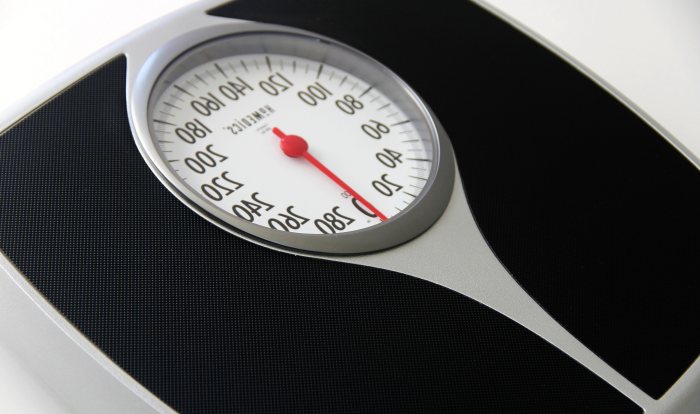Exploring Weight Loss Oral Medication: A Helping Hand For Your Health Journey
For many people, the path to a healthier weight can feel like a really tough climb, a bit like trying to solve a puzzle with missing pieces. Sometimes, even with consistent effort in diet and exercise, those stubborn pounds just don't seem to budge. That's where weight loss oral medication might come into the picture, offering a different kind of support when other methods aren't quite enough. It's about finding the right tools for your unique situation, so you can feel better and move forward.
You know, it's almost as if our bodies sometimes need a little extra nudge to respond to changes, and that's completely okay. Many folks report that these medicines help them make better choices about food, maybe thinking about it less, and feeling more in charge of their eating habits. It's not a magic fix, of course, but rather a way to assist your efforts, possibly making the whole process a little smoother for you.
So, if you've been curious about how these types of medications work, or perhaps wondering if they could be an option for you, you're in the right spot. We'll look at what they are, how they might help, and what things you should think about before considering them. It's about getting all the facts, naturally, to help you make an informed choice for your personal health journey.
- Arbys French Dip
- Alice Thunder Batting Cage
- What Does Ik Mean
- Lauren Alexis Twerking
- Its Not A Phase Mom Dress To Impress
Table of Contents
- Understanding Oral Weight Loss Medications
- How Oral Medications Support Weight Management
- Common Oral Medications You Might Hear About
- Who Might Benefit from Oral Medication?
- Weighing the Benefits and Risks
- What to Expect When Taking Oral Medication
- The Bigger Picture: Medication as Part of a Plan
- Frequently Asked Questions About Oral Weight Loss Medication
Understanding Oral Weight Loss Medications
Oral weight loss medications are medicines you take by mouth, designed to help people who are overweight or have obesity manage their body weight. These aren't just for anyone, though; they're typically considered when changes to diet and exercise alone haven't brought about significant results. It's important to know that these medications are a treatment tool, not a standalone solution, and they work best when used alongside a healthier lifestyle. You know, they're part of a bigger picture.
The idea behind these pills is to give your body some assistance in ways that can make losing weight a bit more achievable. They might help by influencing your appetite, changing how your body handles food, or even by affecting your metabolism. This is a growing area, too; with injectables like semaglutide (Wegovy) and tirzepatide (Zepbound) gaining so much attention, pharmaceutical companies are really looking at new oral options, as a matter of fact.
Many people who have used these medicines report feeling more in control of their food choices. It's like they're making better decisions about what they eat, and perhaps not thinking about food quite so much throughout the day. This can be a huge relief for someone who feels constantly preoccupied with eating or hunger, and that, is that.
- Melania Trump Hamburglar
- Symone Sanders With Hair
- Jason Kelce Dancing
- Burn Movie Chair Scene
- Blue And Purple Make
How Oral Medications Support Weight Management
Oral weight loss medications work in a few different ways to help you manage your weight. It's not just one single mechanism, but rather several paths these medicines can take to influence your body's processes. Understanding these methods can help you see how they might fit into your personal health plan, you know, for sure.
Reducing Appetite and Cravings
One common way these pills help is by making you feel less hungry or more full. This means you might eat smaller portions or snack less often, which naturally leads to taking in fewer calories. Many people find that their constant thoughts about food lessen, making it easier to stick to a healthier eating pattern, and that's pretty helpful.
Some medications work on brain chemicals that control hunger signals, essentially turning down the "eat more" message. This can be a really big deal for individuals who struggle with strong cravings or a persistent feeling of hunger, even after eating. It's about helping you feel satisfied with less, which is a key part of losing weight, in a way.
Altering Nutrient Absorption
Another approach some oral medications use is to limit how much fat your body takes in from the food you eat. These types of medicines work in your digestive system, preventing some of the fat from being absorbed into your body. Instead, the unabsorbed fat passes through your system, which means fewer calories from fat actually get used by your body, so.
This method can be particularly useful for people whose diets are higher in fat, as it directly impacts calorie intake from that source. It's a different strategy compared to appetite suppression, but it still aims to reduce the total number of calories your body processes. You know, it's a direct way to cut down on energy input.
Boosting Metabolism
While less common for primary weight loss oral medications, some might have a minor effect on your metabolism, which is how your body burns calories for energy. A slightly increased metabolism means your body uses more energy throughout the day, even at rest. This can contribute to a calorie deficit, which is necessary for losing weight, you know, just a little.
It's not usually the main way these medications work, but it can be a supportive factor in the overall process. The primary focus is often on reducing food intake or absorption, but any metabolic boost can certainly add to the effect. So, it's another piece of the puzzle, essentially.
Common Oral Medications You Might Hear About
There are several oral medications that doctors might consider for weight management, each with its own way of working and its own set of considerations. It's really important to talk with a healthcare provider to figure out which, if any, might be suitable for you. They can help you compare the risks and benefits of these common medications used for overweight and obesity, as a matter of fact.
Phentermine
Phentermine is one of the older and more commonly prescribed oral weight loss medications. It works by affecting brain chemicals to reduce your appetite, making you feel less hungry. Typically, it's used for a shorter period, often a few weeks, to help kickstart weight loss. It's pretty well-known, like your go-to option.
People often report a significant decrease in appetite when taking phentermine, which can make sticking to a lower-calorie diet much easier. However, it does come with potential side effects and isn't for everyone, especially those with certain heart conditions. Your doctor will look at your full health picture before considering this one, naturally.
Contrave
Contrave is a combination medication that includes naltrexone and bupropion. These two ingredients work together on different parts of your brain to help reduce cravings and control appetite. It's thought to help with the emotional side of eating, too, making it easier to resist urges for certain foods. It's kind of a dual-action approach.
This medication is often prescribed for longer-term use and can be a good option for people who struggle with emotional eating or intense cravings. It's a different mechanism than just pure appetite suppression, which can be beneficial for some individuals. So, it's another tool in the box, basically.
Orlistat
Orlistat is an oral medication that works in your digestive system to block some of the fat you eat from being absorbed. It's available both by prescription and as an over-the-counter option at a lower dose. This means that fewer calories from fat actually make it into your body, which can help with weight loss. It's a fairly direct way to reduce calorie intake.
Because it works by blocking fat absorption, it can lead to some digestive side effects if you eat a high-fat meal. This can sometimes encourage people to make healthier food choices, as a matter of fact, knowing the potential consequences. It's a way to support your goals by limiting nutrient intake, you know.
Metformin and Its Role
While not specifically approved as a weight loss drug, metformin is an oral medication primarily used to treat type 2 diabetes. However, it can sometimes lead to modest weight loss, especially in individuals with insulin resistance or prediabetes. It works by reducing glucose production by the liver and improving the body's sensitivity to insulin. It's kind of a side benefit, really.
Doctors might consider metformin off-label for weight management in certain situations, particularly if there are underlying metabolic issues. It's not usually the first choice for weight loss alone, but it's an option that some people might discuss with their doctor, apparently. Learn more about on our site for related health topics.
Who Might Benefit from Oral Medication?
Oral weight loss medications aren't for everyone, and a healthcare provider will carefully assess if they're a suitable option for you. Typically, these medicines are considered for adults who have a body mass index (BMI) of 30 or higher (considered obesity), or a BMI of 27 or higher with at least one weight-related health condition, such as high blood pressure or type 2 diabetes. It's a very specific set of criteria, you know.
They are often recommended when dietary changes and exercise efforts alone have not been enough to achieve significant weight loss or improve health markers. It's about providing an additional layer of support when traditional methods hit a plateau or simply aren't yielding the desired results. So, it's for those times when you need a little extra help.
Moreover, the person considering these medications should be committed to making lifestyle changes, too. These pills work best when combined with a balanced diet and regular physical activity. It's not a substitute for healthy habits, but rather a tool to enhance their effectiveness, which is important to remember.
Weighing the Benefits and Risks
Like any medical treatment, oral weight loss medications come with both potential benefits and risks that need careful consideration. On the benefit side, people can typically lose up to 3% to 12% of their body weight while using these medications, which can lead to significant health improvements. This weight loss can help improve blood sugar levels, blood pressure, and cholesterol, you know, for instance.
Beyond the numbers on the scale, many users report feeling more in control of their eating habits, thinking about food less, and making better food decisions. This can lead to a greater sense of well-being and a more positive relationship with food. It's about feeling empowered, really.
However, there are risks and potential side effects to consider. These can vary widely depending on the specific medication but might include digestive issues, headaches, or changes in mood. Some medications also have more serious risks, especially for individuals with pre-existing health conditions. Your doctor will help you compare these risks and benefits to make an informed decision about your health. It's a thorough process, naturally.
What to Expect When Taking Oral Medication
When you start an oral weight loss medication, your doctor will usually begin with a low dose and gradually increase it. This helps your body adjust to the medicine and can reduce the chance of side effects. It's a slow and steady approach, usually, to see how you respond.
You'll likely have regular check-ups with your healthcare provider to monitor your progress, discuss any side effects, and adjust your treatment plan if needed. It's a collaborative effort between you and your doctor to find what works best. They'll keep an eye on things, so.
It's also worth remembering that weight loss can affect how your body feels in other ways. For example, if you gain weight, your clothes will start getting tighter and tighter until you buy a new set of clothes; the same goes with losing weight, the clothes will get loose. This is a natural part of the process, and it's a good sign that your efforts are making a difference, you know.
The Bigger Picture: Medication as Part of a Plan
It's crucial to see oral weight loss medication as one part of a comprehensive weight management plan, not the entire solution. These medicines are most effective when combined with a commitment to healthier eating patterns and regular physical activity. They are designed to support your efforts, making it easier to stick to those changes. It's like having an extra helper, you know.
Your healthcare team, which might include a doctor, a registered dietitian, or a fitness professional, can help you create a personalized plan. This plan should address not just what you eat and how much you move, but also other factors that influence weight, like sleep and stress. It's a holistic approach, basically.
Ultimately, the goal is to achieve sustainable weight management and improve your overall health. Oral medications can be a powerful tool in reaching that goal for many people, providing that much-needed support when dietary changes and exercise alone are not enough. It's about finding what works for you, and supporting your well-being. To learn more about and how it can help you, please visit our dedicated page.
Frequently Asked Questions About Oral Weight Loss Medication
Are prescription weight loss drugs right for everyone?
No, prescription weight loss drugs are not suitable for everyone. They are typically considered for individuals with a certain body mass index (BMI) or those with weight-related health conditions, and only after diet and exercise alone have not been effective. Your doctor will assess your overall health, medical history, and specific needs to determine if they are a safe and appropriate option for you. It's a very personal decision, naturally.
How much weight can someone expect to lose with oral medications?
The amount of weight a person can expect to lose varies depending on the specific medication, individual response, and adherence to lifestyle changes. However, studies show that people can typically lose anywhere from 3% to 12% of their initial body weight while using these medications. This amount can lead to significant health improvements for many. It's quite a range, you know.
Do weight loss oral medications have side effects?
Yes, like most medications, oral weight loss drugs can have side effects. These can range from mild, like nausea or constipation, to more serious ones, depending on the specific drug. It's important to discuss all potential side effects with your doctor before starting any medication, and to report any new or worsening symptoms once you begin treatment. They'll help you manage any issues, so.



Detail Author 👤:
- Name : Dax Davis
- Username : zboncak.oma
- Email : norberto.von@kilback.com
- Birthdate : 1975-07-02
- Address : 11358 Hailie Street Friedrichborough, NH 63407-8761
- Phone : (972) 319-0729
- Company : White LLC
- Job : New Accounts Clerk
- Bio : Sit necessitatibus explicabo occaecati velit qui dolor. Commodi facilis non et quaerat cupiditate consequatur. Ut et et cum architecto consequuntur.
Socials 🌐
linkedin:
- url : https://linkedin.com/in/mireille.prosacco
- username : mireille.prosacco
- bio : Magni accusantium adipisci sit.
- followers : 3608
- following : 92
facebook:
- url : https://facebook.com/mireilleprosacco
- username : mireilleprosacco
- bio : Laborum voluptatibus id velit iure. Inventore eos minus omnis.
- followers : 5904
- following : 564
twitter:
- url : https://twitter.com/mireille_xx
- username : mireille_xx
- bio : Sint omnis est neque voluptatum. Totam assumenda qui sit quod inventore sit. Est dignissimos accusamus pariatur incidunt.
- followers : 3707
- following : 2570